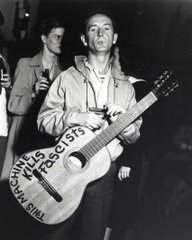Thank you for your service
What does service mean these days, and how do you show genuine respect in these polarized political times? "Thank you for your service." If you're a soldier, you get this all the time. Sometimes it's a blatant dodge; I've had conservatives trot this out after bashing me, as if trying to cover their asses for treatment that they dish out only to liberals. (Conservatives also invariably try and separate you from the group, another sure sign that they're up to no good.) But soldiers are sacrosanct, so even while they disrespect liberal soldiers and the very notion that there can be liberal soldiers, they feel some twinge of...something. Not guilt, because there's no such thing as guilt to people as sublimely untroubled as this, but maybe fear of exposure. I mean, if people really are so grateful for soldiers' service, why was John Kerry hung out to dry when his opponents were so obviously biased, untruthful, and sloppy? Service is an interesting conundrum politically, because the service rates of conservatives and liberals differ so markedly, and because talking the talk as a substitute for walking the walk is harder and harder these days, with the internet serving as a kind of user-friendly archeolgical dig. Bill Clinton didn't want to serve in Viet Nam, and got ridiculed for it: George W. Bush avoided service by means that remain mysterious to this day, and don't you dare apply to his service the same vicious tactics that were used on a genuine hero like Massachusetts Senator John Kerry. More to the point, Kerry quietly and honorably---along with the late Teddy Kennedy---went to every funeral of every Massachusetts soldier who fell during the Bush administration. Bush never went to a single one. Soldiers, you see, have this thing about other soldiers. I served with too many soldiers---white, black, yellow, red, gay, straight, married, divorced, conservative and liberal----who found out that when the shit hit the fan all that demographic stuff didn't matter nearly as much as the fact as you had a buddy by your side, experiencing the same hell. And maybe you wouldn't be buddies in the real world back home without the military, but once you go through it, it's the rare battle buddy indeed that turns their back on those they served with. And, yes, that includes conservatives, for the most part, because again---real life has a tendency to temper those black-and-white opinions. If the other soldier who saves your ass is gay or Muslim, it might just give you pause about making that gay or Middle Eastern joke. And expecting that of your fellow soldiers gives you an idea of how the military's training doesn't make the troops into quite the cold-blooded killers of popular myth and movie. Like or not, you go through a war and come home and it's that type of honor that you find lacking in civilian life. Only your buddies can provide it, whatever they are. People looking into the military with an agenda know this, of course. They know this just as surely as they know that if they put black and white guys together in stressful times, barriers are going to fall and friendships are going to form, just as if you put men and women together under a good commander you'll see the same thing. Ironically, the military--this machine of war---does an awful lot to promote friendship at least in the ranks, and if only we could bottle it and spread it around. Familiarity doesn't breed contempt; it breeds compassion. Yet fewer and fewer Americans know anybody who's in the military these days. Immigrants have always seen the deal that the military offers and seized it, while native born Americans seem a bit squeamish about the notion that they dirty their hands with hard unglamorous labor. The public suspects what we do, but it also fears it. That fear is fed by movies that depict the satire or savagery of war, but find it hard to show the true measure of, say, what you'd call in civilian terms---supervisors or bosses. I've never had civilian bosses as good as I've had high-ranking souls in the Army treat me, and being respected gets to be addictive after a while. It also tends to make you perform at a higher level as well. You can't fake that kind of regard, and soldiers are used to a level of comeraderie that most civilians don't ever get to see. So the public looks in and doesn't know what to make of all the conflicting stories, and we've moved on from the times when there was a soldier in every family. Nowadays, we have an all-volunteer service, which means people want to be there, often out of need. What often happens is that we join for one need and find another. The allure of brother- or sister-hood is extremely powerful once you get a taste of it. When I went to Basic Training, I was the second-oldest female there and something of an object of curiosity amongst the teens who formed the majority of my platoon. Our drills were all male so there was quite the interesting clash of gender roles and resistance for a while. Sexism does work for some women, as long as they're willing to sacrifice a true connection with other women and men. (If you want to see real hatred of men, go check out conservative women. If you're not a six-foot-tall macho man who kills and skins deer with your bare hands and disdains diaper changing, you're not a man to the likes of Phyllis Schlafly, etc, etc.,) You can't really connect to other people if you think of them in terms of, say, checklists of items that they have to fulfill, and so when at Basic a young female soldier propositioned another drill from another company via mash note, I expected to see her ripped apart by the drill as a disobedient soldier at best. She was my battle buddy, and so I was present there in the office as a witness to the sort of meeting occasioned in so many different ways by the very gender roles I was only mistily aware of at the time. My drills were a short, red-faced redneck who bluntly had identified himself as a former drinker, a genial Hispanic NCO who was the most relaxed of the three, and a black NCO who managed to be both a dandy---at FTX, no less---and yet a stern taskmaster as well. Conducting the meeting that day in the office was the first drill, a man who I had not yet had time to assess, but by that time I'd had plenty of experience with men in the real world and knew what to expect when the subject was, say, sex and women. Or so I thought. The drill showed the private the note and asked her gently if she'd written it---something that had been quite clearly forbidden during orientation. (One of the things that shocked me during the initial briefings was seeing men discuss, say, menstruation and sexual desires in a stressful environment and how to handle both. I wasn't used to what I'd call regular guys treating such things---and by extension, women---in such a matter-of-fact, non slut-shaming kind of way.) When she admitted that she'd written it, the drill squared his shoulders and looked from me to her, then fixed on her. "Private, I want to ask you something, and I want you to be honest. I'm tryin' to help you here. All right?" All of this was said, by the way, in the deepest cracker accent possible, a roller coaster of luxurious cadences that would have led a biased viewer to a rather negative view of the speaker. If so, they'd be wrong. "Private, have you been messed with before you came here?" To make a long story short, she had, and the drill got her counseling while obeying the regulations. It's that kind of imagination and compassion that make you bond with your fellow soldiers, and it's that kind of thing that is glaringly missing from when conservatives talk about John Kerry or some other liberal soldier. It's been missing from far too many interactions that I personally have had with various entities from the VA, yet repeatedly when I've talked to even the lowliest civilian pencil pusher from the Army I've been driven nearly to the point of tears by the compassion. Who's serving whom here? "Thank you for your service." Well, um....You know, some of us want to serve, to do good things for others anonymously, to be part of a cause, and those who serve alongside us are often the most sincere in their respect. Those who've been through the shit of course know what it's like, so it's glaring and obvious when the phrase is used in the manner of, "No offense, but...." or "I'm not blaming the victim, but...." What one might run up against while using the phrase is the frank discomfort of many on the receiving end. The military is not a monolith, and so some soldiers admit frankly they didn't so much serve as hang out, chill, and pass the time. They might not want to pretend otherwise. Do we judge the service level and proportion our gratitude? Or do we offer the same thing to one and all? Is that appropriate? Who asks? Who answers? How, in the end, do we honor those who serve? I don't know how to answer that, because I've only got vague feelings of discomfort with the phrase to offer---and the far firmer opinion that people who really are grateful for service don't act the way conservatives have acted toward liberal service members. It seems to me that people are often deeply uncomfortable with the idea that soldiers---whether they be Pat Tillman or Lyndie England---come from the same towns and communities as the rest of the population, and that when we do extraordinary things one has to ask why others do not come from those same small towns and pick up the load as well. People respect soldiers uneasily, often, and, and as long as that unease exists, so, too, will ignorance about what we do, how we really do it, and what it does to us. Maybe, just maybe, the way to respect someone's service is to find a new phrase for every soldier, to spare a moment of one's day in thinking up a conversation that doesn't include any one-size-fits-all phrases. Maybe the best way to respect us is to ask how our day's going, what it consists of, and what we need. Those who serve, it turns out, might one day need that favor returned. When you say, "Thank you for your service," It's almost, in some hands, like a tip on a check in a restaurant. And we all know about bad tippers, right? Do we get to make demands? Do we get to set the rate? What's the going rate on respect? And that, it turns out, is one of the few services that cannot be done for you. You have to come to that answer on your own. All I can do is point out that respect is evident, as noted above, amongst service members. Beyond that, it's up to you.by ginmar






No comments:
Post a Comment